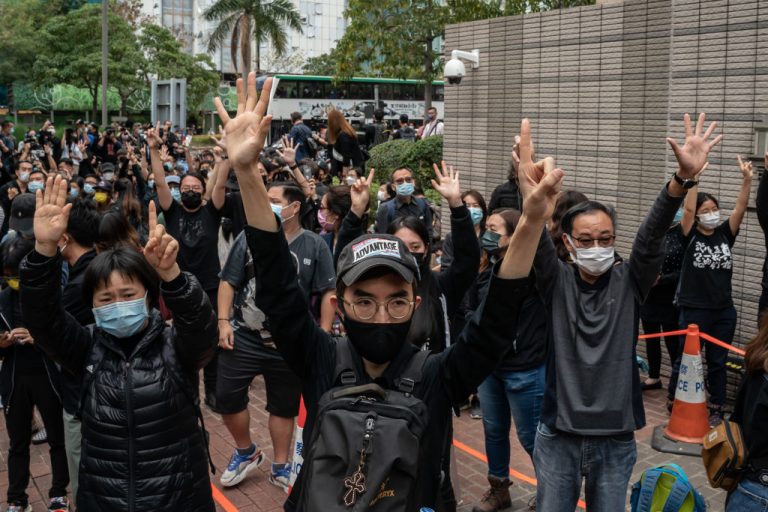The court of Hong Kong has judged that the state cannot wantonly charge individuals with the crime of rioting without proper evidence. Hong Kong has used rioting charges against citizens participating in pro-democracy protests.
The judgment came in response to appeals made by two pro-democracy activists whom the government has charged for the unrest which took place during the 2016 and 2019 protests.
“The Court of Final Appeal’s five-judge panel explained in its written judgment that the offenses of rioting and unauthorized assembly are both participatory in nature and that there must be sufficient evidence shown of having taken part and of having done so intentionally. Merely being present should not constitute a crime,” reported Nikkei Asia.
However, the court added that individuals who remotely mastermind a criminal assembly, provide funds for such assembly, or promote it on social media are exempt from the judgment.
The top court’s decision also struck down a lower court ruling which held that Hong Kong authorities could punish activists as primary offenders even in a situation where the activists have not physically attended the protest in a manner that violates the national security law.
Success
You are now signed up for our newsletter
Success
Check your email to complete sign up
The court’s judgment is the latest in a series of cases where individuals charged in connection with pro-democracy protests have either avoided heavy punishment or been acquitted.
Pro-CCP politicians have expressed frustration at such decisions. Out of the 2,700 plus people who are yet to be tried in court for protest-related crimes, 750 have been charged with rioting. It carries a maximum punishment of up to 10 years in prison.
Criminal lawyers in Hong Kong believe the recent decision made by the Court of Final Appeals has huge significance and will impact future prosecutions.
“They’ve effectively raised the bar for the prosecutors—and maybe even stopped a flood of sweeping and hasty charges… That does not mean that the government won’t try to bring different charges though after going back to the drawing board,” a criminal barrister told Reuters.
Beijing has been tightening its grip on Hong Kong over the past few years, crushing democracy and free speech activists. It also passed the national security law which allows the CCP to arbitrarily punish people on the grounds of national security.
Several pro-democracy activists have been arrested under the law. Many organizations have withdrawn from Hong Kong as a result; the latest was Amnesty International. On Oct. 25, the human rights group said that they were shutting down Hong Kong offices.
“This decision, made with a heavy heart, has been driven by Hong Kong’s national security law, which has made it effectively impossible for human rights organizations in Hong Kong to work freely and without fear of serious reprisals… The environment of repression and perpetual uncertainty created by the national security law makes it impossible to know what activities might lead to criminal sanction,” Anjhula Mya Singh Bais, the chair of Amnesty’s international board, said in a statement. Amnesty will close shop by the year-end. More than 35 groups have been disbanded this year due to the law.
In a recent press freedom survey, 83 of the 99 polled journalists admitted that the working environment in Hong Kong has become worse after the national security law was passed last year.
Keith Richburg, president of the Foreign Correspondents’ Club (FCC) that conducted the survey, asked for more steps to be taken to restore confidence among journalists. He also wants the government to ensure that Hong Kong retains its decades-long reputation as a welcoming place for the international media.
Beijing has criticized the survey; the foreign ministry accused the FCC of being the “black hands” intervening in Hong Kong’s affairs.














